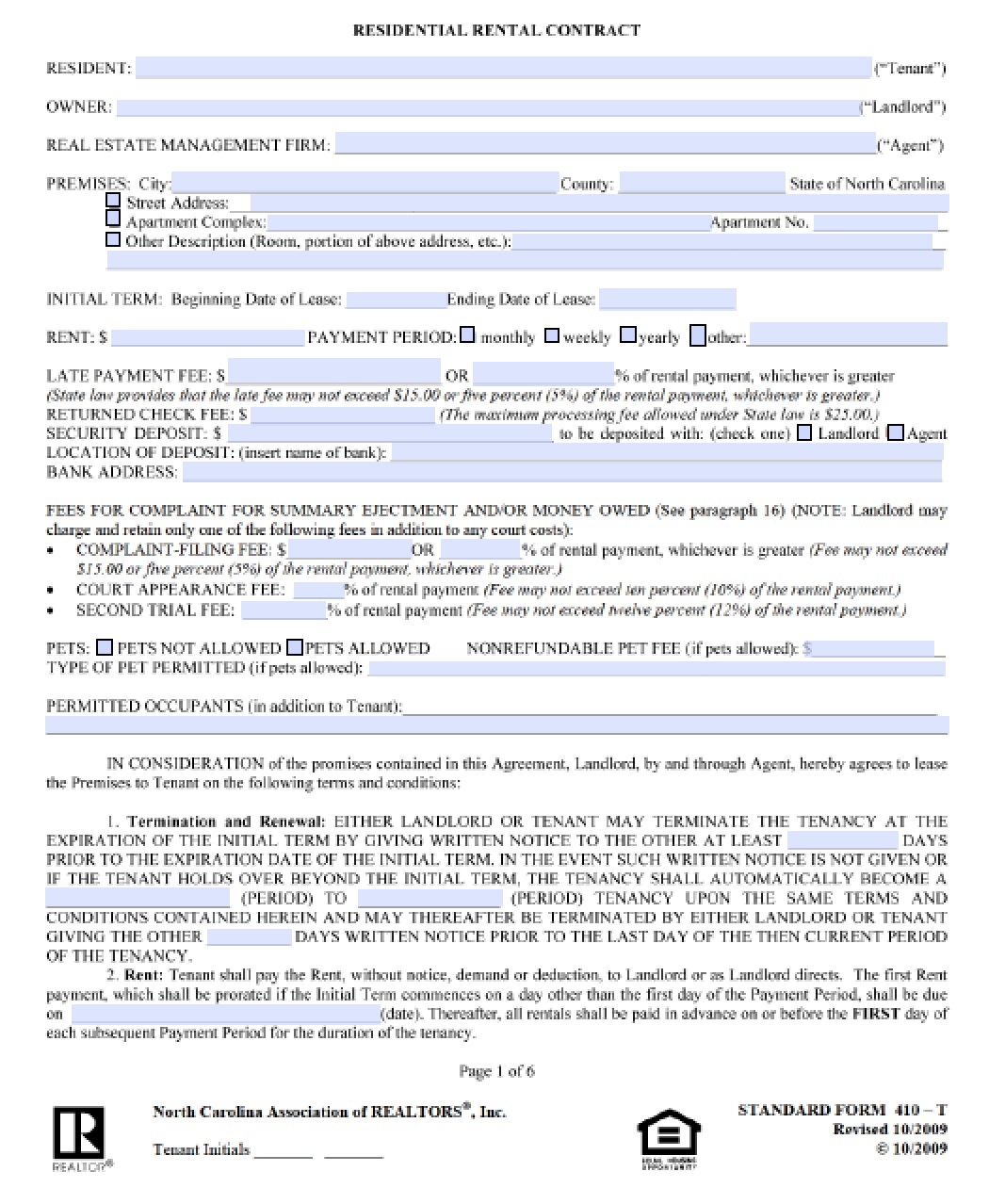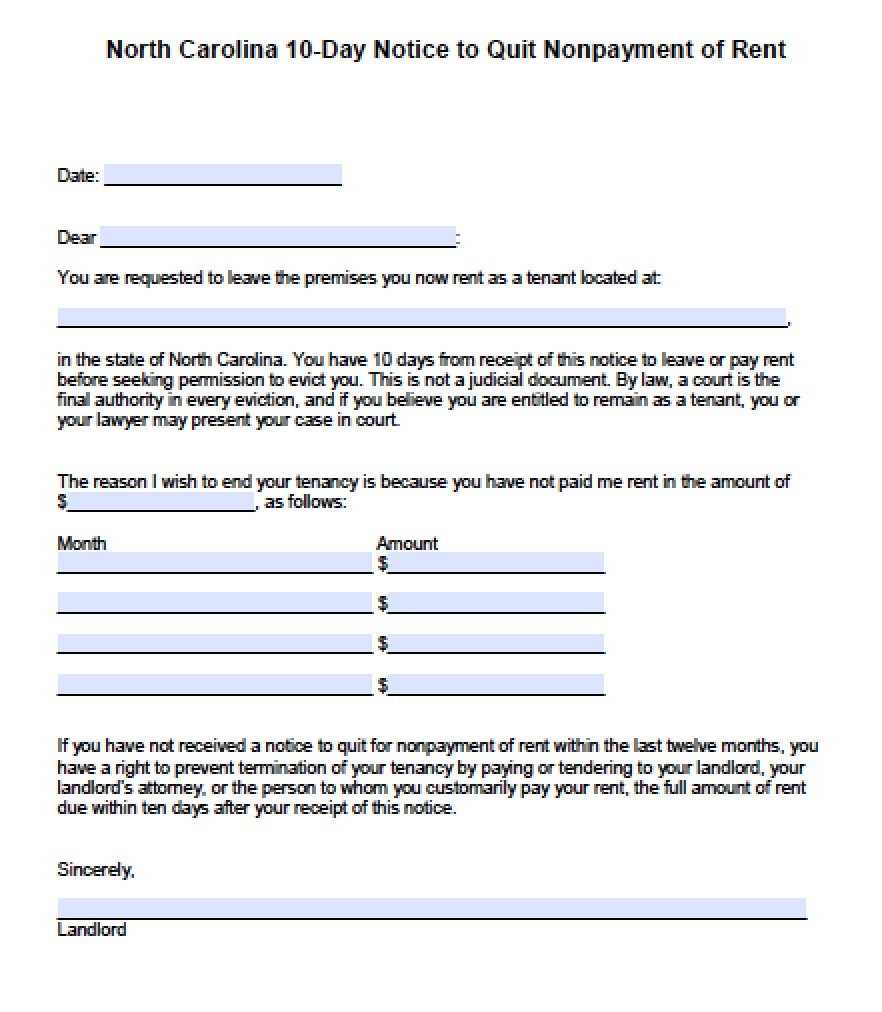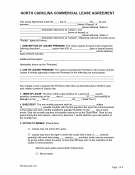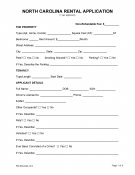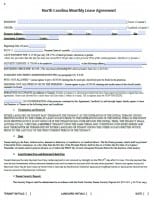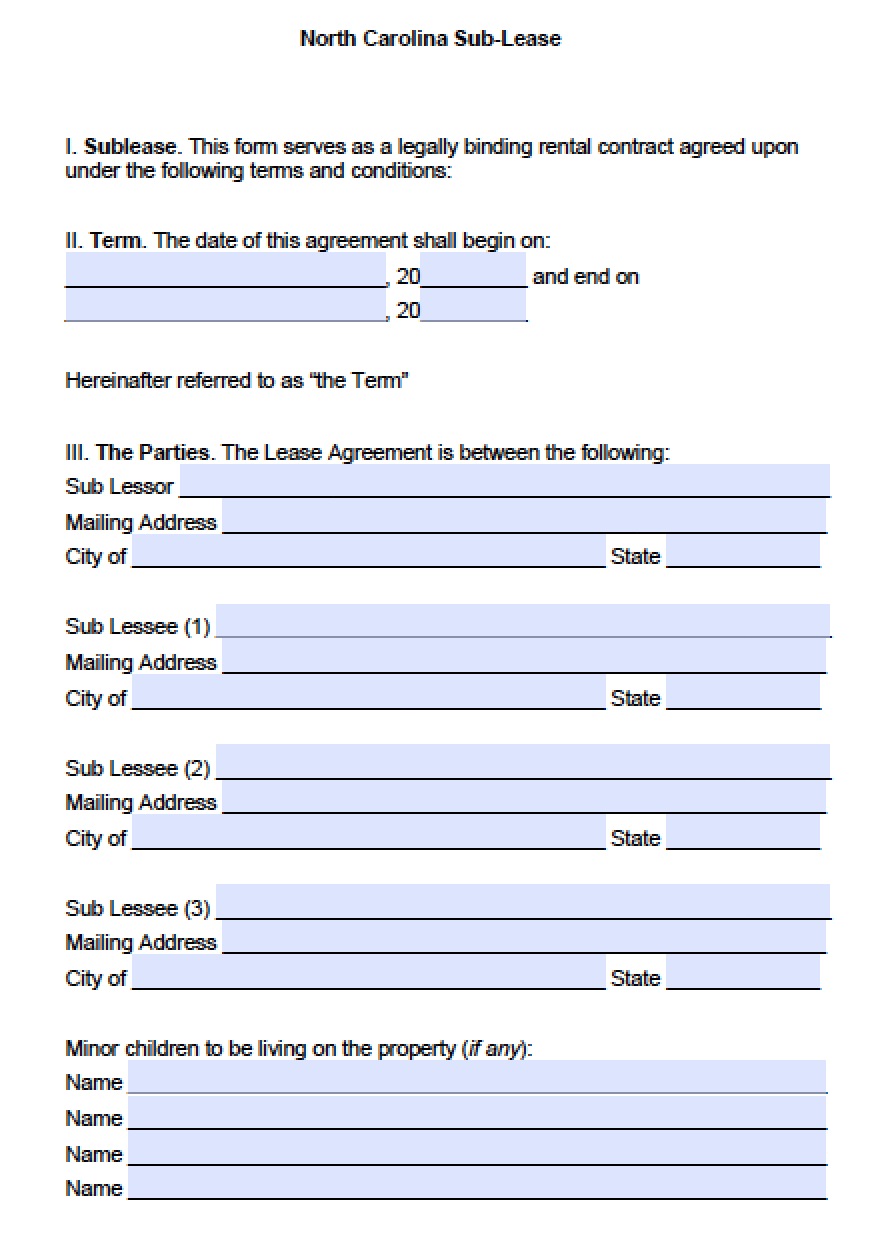The North Carolina rental agreements are used by residential and commercial property owners seeking to lease to a tenant in exchange for monthly payments. The landlord will usually verify that the tenant is qualified to occupy the space by having them complete a rental application which shows their credit and background information. Furthermore, the landlord may lookup any employment references, previous tax returns, and previous landlords that have had experience with the tenant. Once approved, the parties may sign the lease to bind each other to its terms and conditions.
North Carolina Rental Lease Agreement Templates | PDF
North Carolina Lease Agreements
The North Carolina standard residential lease agreement is used to bind a landlord and tenant to a rental arrangement where the tenant pays for the use of livable space. This form is structured around a one (1) year term with payments made to the landlord every month. For the document to go into effect, both parties will have to agree to the terms of the contract such as the length of the lease term, rent due date, monthly rent cost,…
The North Carolina eviction notice is to be used by a landlord when a tenant fails to pay rent on time. The landlord will issue this form to allow the tenant up to ten (10) days to either vacate the property or pay the overdue amount which, if paid, will continue the lease as if nothing happened. The tenant should note that if they decide to vacate, it does not mean that they are off the hook for the amount…
A North Carolina commercial lease agreement enables a property owner to lease their space to an office, retail, or industrial business tenant. The agreement outlines the conditions which will define the landlord-tenant relationship, such as the contract term, rent payments, utilities, property maintenance, parking, and if a security deposit will be collected. Once the parties agree to the rental terms, they should sign the contract to create a legally binding tenancy. Commercial leases may be paid in one of the following…
The North Carolina rental application is a document used to screen a tenant who is interested in signing a legally binding lease agreement. The primary point of interest for the landlord is the tenant’s financial information, more specifically, their employment and credit history, as well as their banking information (including account numbers). The landlord should also ask for references from previous property owners/managers to see if they paid on time when renting. Upon approval, the landlord will write a lease and…
The North Carolina month-to-month lease agreement is a rental form used by residential landlords and tenants seeking a lease with no predetermined end date. If the landlord is taking on a new tenant, they should be wary as the same landlord-tenant laws that apply to monthly contracts apply to standard, one-year agreements. Therefore, the same risk of a possible eviction is present, and the landlord should take the same precautions before entering into a binding contract such as asking the…
The North Carolina sublease agreement is a form that allows a tenant to rent their leased space to a sublessee. The tenant must usually make a formal request to obtain permission from the landlord to sublet as most standard leases do not allow this type of arrangement. The tenant has a choice of two (2) options when deciding on how to conduct a sublet: they may rent the entire space (common for college and university students while they go home…
STATE DISCLOSURES
Fees (§ 42-46) – The landlord may charge the tenant for any fees associated with a potential eviction by stating in the lease that there will be a fee for filing a complaint, appearing in court, and any trials.
Lead-Based Paint – If the housing was built prior to 1978, the landlord is required to inform the tenant of this type of paint which may be on the premises.
Security Deposit Location (§ 42-50) – Within thirty (30) days of the initial term, the landlord must provide the bank name and address where the funds are being held.
Landlord-Tenant Resources:
SECURITY DEPOSITS
Maximum (§ 42-51) – For month-to-month tenancies, the landlord may charge up to one and a half (1.5) months’ rent. For any agreement longer than two (2) months, the landlord may charge up to two (2) months’ rent.
Returning (§ 42-52) – The landlord must give back the funds within thirty (30) days after the termination of tenancy.
LANDLORD’S ACCESS/ENTRY
There is no statute stating that the landlord must give notice to the tenant in order to enter the property for standard maintenance. However, it is common courtesy to give the tenant twenty-four (24) hours notice before accessing the premises.

